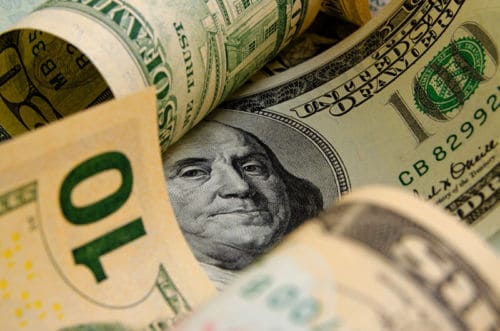Feeling overwhelmed? Stressed about work, a family illness or election season? It turns out that worry and anxiety can have an impact on your wallet.
“Stress leads consumers to favor saving money,” says Kristina Durante, an associate professor of marketing at Rutgers Business School who researches the effect of hormones and consumer behavior. Although stressed consumers want to save, when faced with a spending decision, stressed consumers will pay for necessities they think will help restore control rather than splurge on non-necessities.
In a study published in the Journal of Marketing Research in October, Durante and Juliano Laran at University of Miami find that stress leads consumers to save money in general but spend strategically on products they believe are essential.
In several experiments, Durante and Laran created stressful situations for participants, including leading them to believe they would give presentations in front of judges and directing others to write about a stressful time in their lives. Faced with the stress alone, most say they wanted to save more money.
Durante says the body reacts to stressful challenges with an increase in the hormone cortisol, which leads us to focus our attention toward the threat so that we can attempt to overcome it or alleviate it. “People lock down and enter survival mode and protect resources as a means to ensure survival,” she says.
When researchers tasked stressed participants with making a decision about how to spend up to $250 – one group on everyday products and necessary household goods, the other on non-necessities including entertainment goods – the group buying items deemed necessary spent more money. Neither group spent all of the $250.
In another experiment, researchers restored a sense of control for one group before asking them about spending money by having them write about an instance in their life where their actions led to a good outcome. That group spent more money on purchases.
“What we found was for those with momentary levels of acute stress who then go and make a decision about how to spend their money, they want to save their money,” Durante says. “But for those who were stressed out and then had their sense of control restored, we found they were more willing to spend their money.”
The roots of the stress matter. People who said they were stressed about a current job situation, for example, were less likely to spend money on clothes, while others stressed about starting a new job were more likely to spend money on new clothes because they perceived the purchases as helping alleviate new-job stress. “What people feel is a necessity shifts depending on what kind of stress they have,” Durante says.
Having some control versus no control seems to affect the buying decisions people make when they are stressed, she says. “You can have situations where stress and a high level of control can improve your performance, like it does for elite athletes. But if you have a high level of stress and a low level of control, that’s when our cognitive efforts can get impaired and we want to save.”
The implications for marketers are many, Durante says. When there are unpredictable situations – extreme weather, elections – consumers may be more open to products that are framed as necessities or those that can restore control, she says.
For consumers, the findings can help people be aware of how they react when they are stressed and making buying decisions.
“When humans are stressed, we still have to go out and about,” Durante says. “We have a lot of consumers out there who are stressed and are faced with decisions about what to purchase.”
Stress is unavoidable in life, yet research on how stressful situations affect how people make spending decisions as levels of the stress hormone cortisol are rising is limited and the findings mixed, Durante says. This research, she notes, is a start.
“Not a lot of research has been done on stress and spending,” Durante says. “It’s so nuanced because different people respond in different ways.” The researchers are in the midst of a follow-up study on how consumers engage with products during a stressful time.


